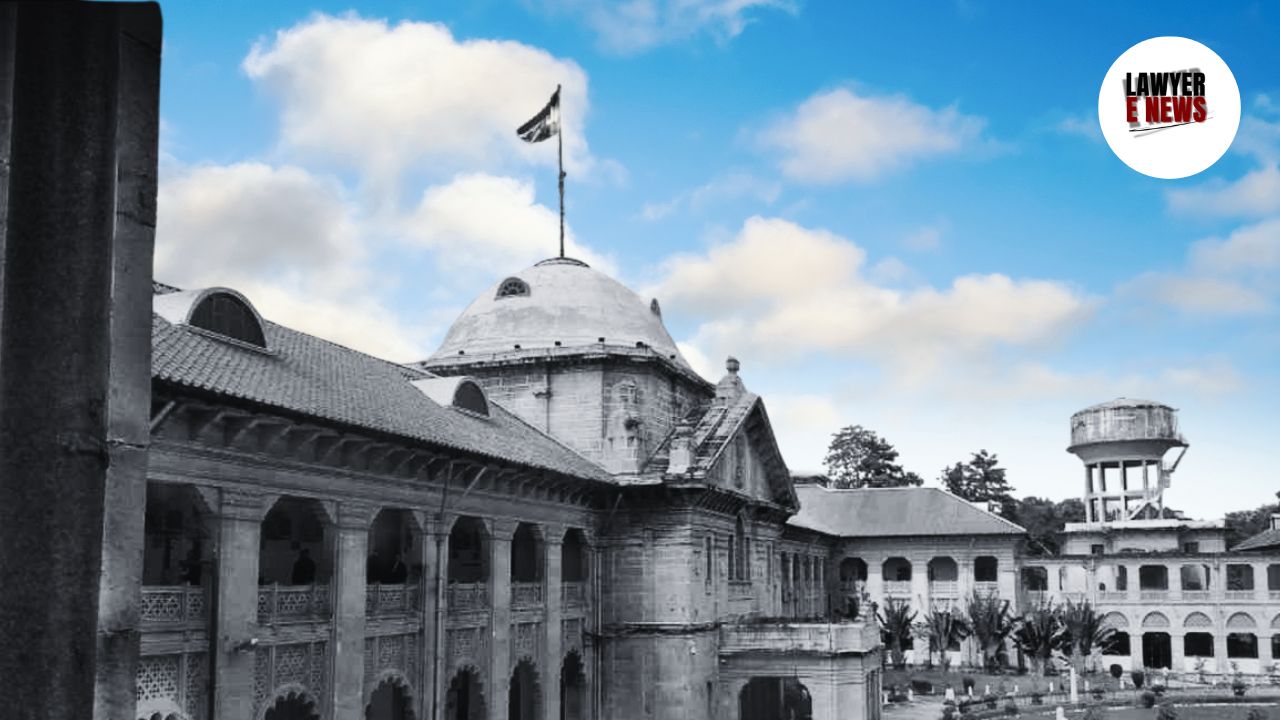-
by Admin
15 February 2026 2:16 AM



High Court Sets Aside Lower Appellate Court's Decision, Reinstates Trial Court's Ruling on Non-Recognition of Customary Divorce and Invalidity of Second Marriage. In a significant ruling, the Allahabad High Court, Lucknow Bench, has reaffirmed the legal principles governing Hindu marriages by setting aside the first appellate court's judgment which had erroneously recognized a customary divorce and second marriage. The decision, rendered by Justice Rajnish Kumar on May 17, 2024, highlights the stringent requirements for proving customary divorces and upholds the trial court's dismissal of the respondent's suit while reinstating the original wife's status.
The case revolved around the legal status of Anarkali, the appellant, who was contesting the claim of Siyawati, the respondent, to be the legally wedded wife of the deceased Rampal. Rampal, who had worked as a peon and died in harness, was claimed by both women to be their husband. Siyawati had obtained a succession certificate and compassionate appointment based on her assertion of being Rampal's wife, which Anarkali contested. The trial court had dismissed Siyawati’s suit, declaring Anarkali as the legally wedded wife, but the first appellate court had reversed this decision, accepting Siyawati’s claim of a customary divorce (Chhoda Chhutti) between Rampal and Anarkali, and recognizing Siyawati’s marriage to Rampal.
Customary Divorce: Insufficient Pleading and Proof: The court meticulously evaluated whether the custom of 'Chhoda Chhutti' (customary divorce) claimed by the respondent was prevalent and recognized within the community. "The custom must be specifically pleaded and proved as ancient, continuous, and recognized in the community," Justice Rajnish Kumar emphasized. The respondent's failure to provide substantial instances or evidence demonstrating the existence and recognition of such a custom led to the conclusion that no customary divorce had occurred between the appellant, Anarkali, and her deceased husband, Rampal. The court further noted that the appellate court's acceptance of customary divorce based on weak evidence was legally unsustainable.
Validity of Second Marriage: The court underscored that a valid Hindu marriage requires adherence to specific rites and ceremonies as stipulated under Section 7 of the Hindu Marriage Act, 1955. The respondent, Siyawati, failed to establish that her marriage to Rampal was solemnized in accordance with these prescribed ceremonies, particularly the essential ritual of 'Saptapadi' (seven steps before the sacred fire). "Merely cohabitating as husband and wife does not constitute a valid marriage under Hindu law," the judgment noted.
Justice Kumar's judgment elaborated on the necessity of stringent proof for claiming a customary divorce, which contradicts the general law of Hindu marriages that views them as sacramental and indissoluble except by a court decree. The court reiterated that any exception to this rule, such as a customary divorce, must be thoroughly proven. "The absence of clear and convincing evidence of such a custom makes the claim legally untenable," the court stated.
Justice Rajnish Kumar remarked, "The burden of proving the custom of Chhoda Chhutti lies heavily on the party asserting it. Without robust evidence, such a claim cannot override the statutory provisions of the Hindu Marriage Act." He further asserted, "The mere assertion of living together as husband and wife does not fulfill the legal requirements for a valid marriage under Hindu law."
The Allahabad High Court's decision to set aside the first appellate court's judgment and restore the trial court's ruling underscores the judiciary's commitment to upholding the sanctity and legal procedures of Hindu marriages. By emphasizing the rigorous standards for proving customary divorces and the necessity of proper solemnization ceremonies, the judgment fortifies the legal framework governing matrimonial disputes. This landmark ruling not only reinstates the appellant's status as the legally wedded wife of the deceased but also serves as a precedent in ensuring that customary claims are backed by substantial evidence in accordance with the law.
Date of Decision: May 17, 2024
Anarkali vs. Siyawati
